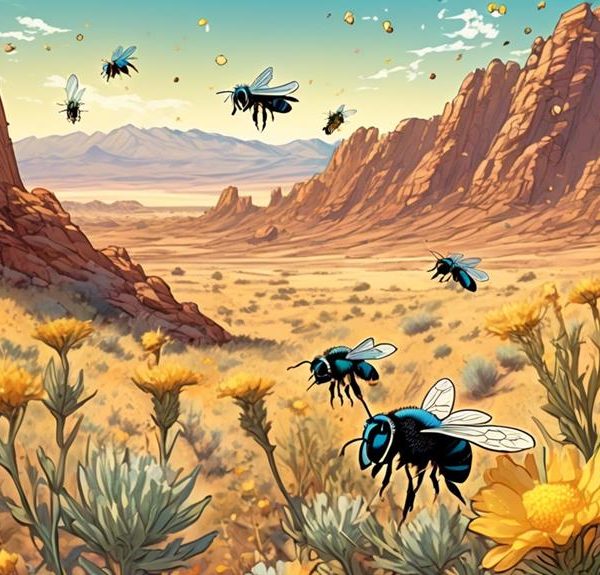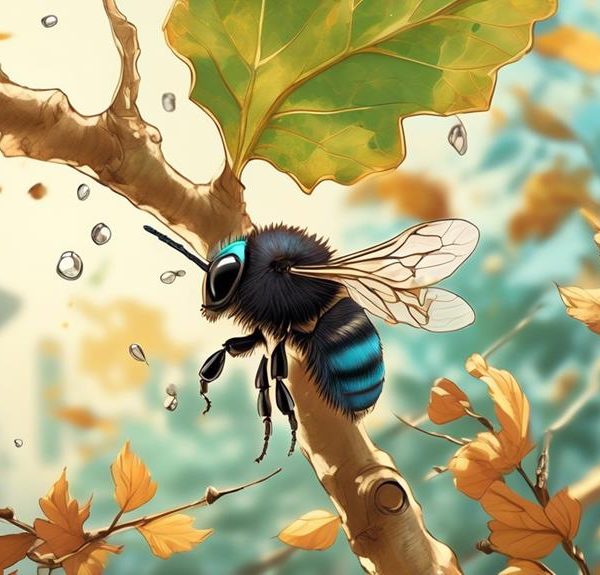Study the surprising symbiosis between mason bees and woodland strawberries, exploring potential benefits and unexpected consequences.
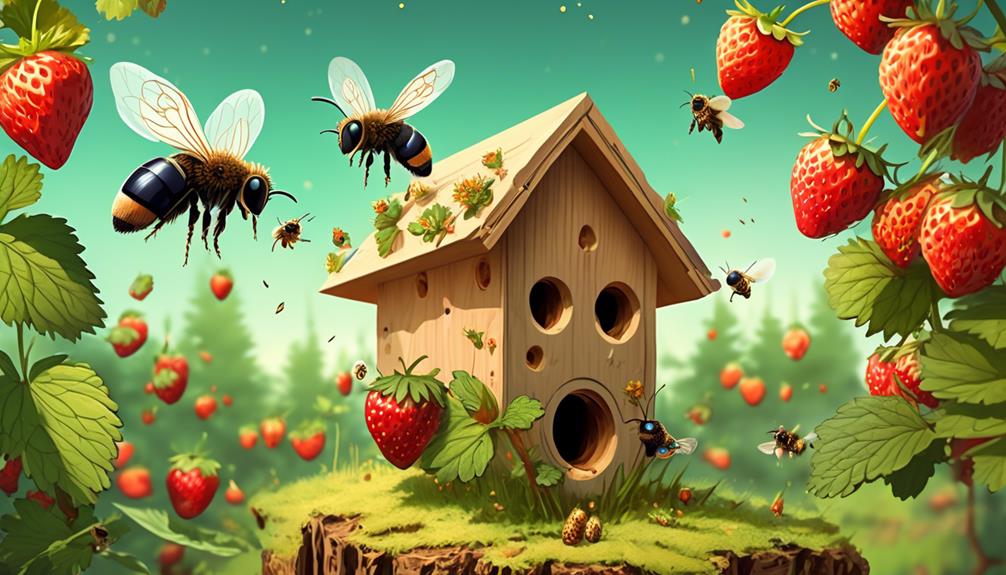
Are Woodland Strawberries Good for Mason Bees?
You know what they say, 'the proof of the pudding is in the eating,' and so it is when it comes to the intriguing relationship between mason bees and woodland strawberries.
You'll find it fascinating to explore the intricacies of this natural alliance, from the bees' role in pollination to the potential nutritional benefits they might reap from these small, wild fruits.
But, is it all as rosy as it sounds or could there be unexpected downsides to this bee-fruit interaction?
There's a wealth of scientific research out there waiting to be unpacked, and you're about to embark on a journey of discovery that could challenge what you thought you knew about these industrious insects and their berry counterparts.
Key Takeaways
- Woodland strawberries provide essential food and nesting resources for mason bees.
- Mason bees that feed on woodland strawberries have higher survival rates and improved health.
- Woodland strawberries offer nutritional benefits, such as proteins, fats, carbohydrates, antioxidants, and vitamins, which enhance bee health.
- Preserving woodland strawberry habitats is crucial for supporting mason bee populations and promoting bee-plant interactions.
Understanding the Mason Bee
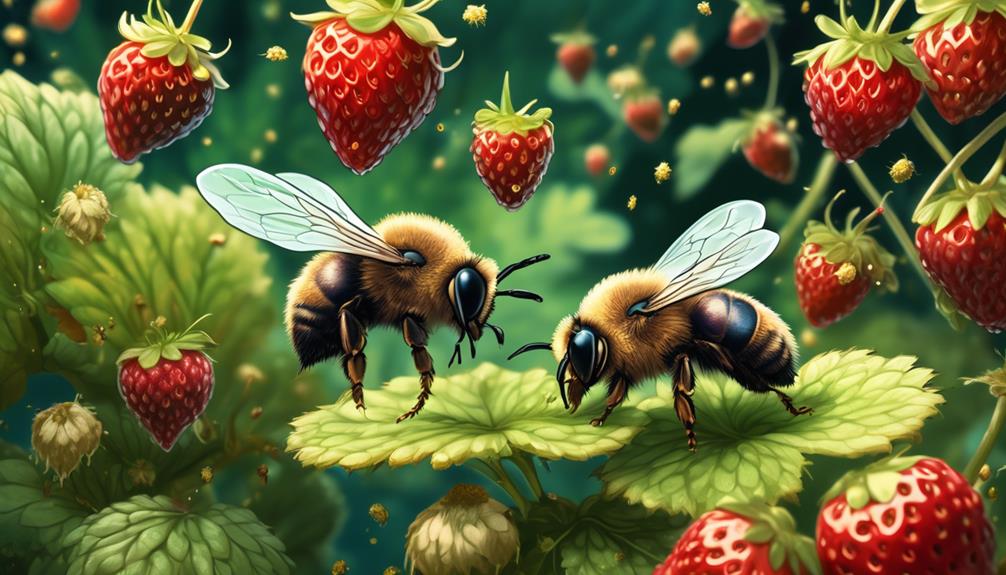
To fully appreciate the role of mason bees in the ecosystem, it's important to first understand their unique characteristics and behaviors. Unlike honeybees, mason bees are solitary insects; each female is a queen who constructs and provisions her own nest. They're named 'mason' due to their habit of using mud to construct their nests, often in cracks, crevices, or tubes.
You might be surprised to learn mason bees are non-aggressive. They don't have a hive or queen to protect, so they generally won't sting unless threatened. They're also incredibly industrious pollinators. A single mason bee can do the pollination work of 100 honeybees, making them crucial players in our ecosystem.
Mason bees are unique in their nesting habits. They prefer holes in wood or hollow stems, where they lay their eggs. Each egg is provisioned with a mixture of pollen and nectar, which will sustain the larva until it emerges as an adult bee.
Understanding the behavior, habits, and characteristics of these solitary pollinators is vital. They're an essential part of our ecosystem, and their well-being directly affects the health and diversity of our plant life.
The Role of Woodland Strawberries
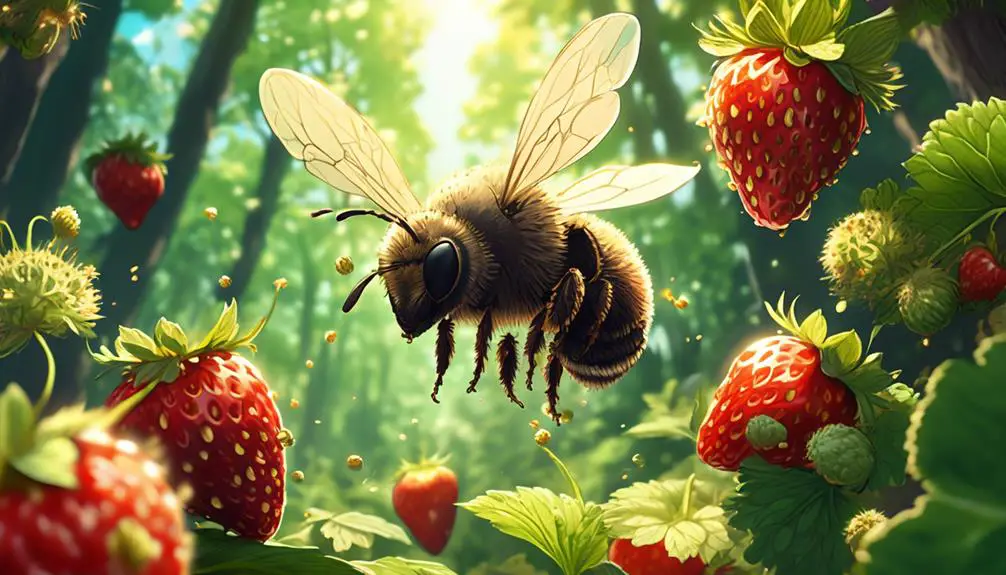
While mason bees are undeniably crucial for our ecosystem, so too are woodland strawberries, offering both a food source and a habitat for various wildlife. Woodland strawberries are not just a tasty treat for you and me; they're also vital for our buzzing friends. They provide nectar, a primary food source for mason bees, especially during the early spring when other food sources may be scarce.
Not only do these strawberries provide sustenance, but their dense growth forms a protective habitat. Mason bees are solitary creatures and the thickets of strawberries offer safe spots for nesting and protection against predators.
Finally, the mutual benefit between mason bees and woodland strawberries should not be ignored. As mason bees feed on the nectar, they inadvertently pollinate the flowers, facilitating their reproduction and ensuring a continuous supply of food and habitat.
Role | Description | Benefit for Mason Bees |
|---|---|---|
Food Source | Provide nectar | Primary nutrition especially in early spring |
Habitat | Dense growth offers protection | Safe spots for nesting, protection against predators |
Mutual Benefit | Bees pollinate the strawberries | Ensures continuous supply of food and habitat |
Impact on Bee Health and Productivity
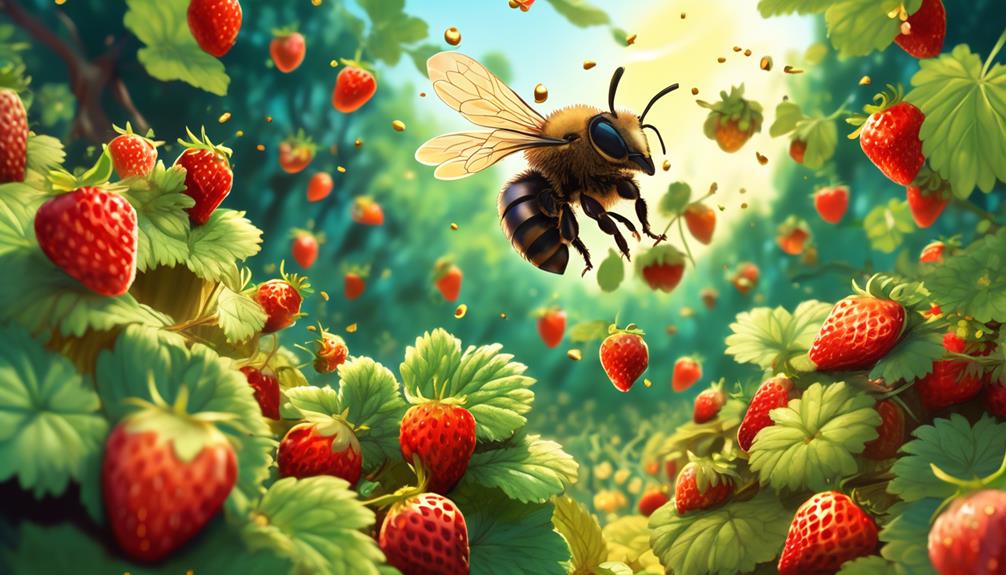
Delving into the impact on mason bees' health and productivity, it's clear that the relationship with woodland strawberries plays a pivotal role. You see, these strawberries are a potent source of pollen and nectar, both vital for mason bees. The pollen provides proteins and fats, essential for bee growth and development, while the nectar offers carbohydrates, critical for energy.
The presence of woodland strawberries has been linked to greater bee productivity. As bees forage, they inadvertently collect pollen on their hairy bodies and transfer it from flower to flower, facilitating cross-pollination. This process is crucial for the reproduction of strawberry plants.
However, it's not just about productivity. Woodland strawberries have a positive effect on bee health too. Research indicates that bees feeding on a diverse diet, such as that provided by woodland strawberries, exhibit improved immune responses. They're better able to resist diseases and parasites, contributing to healthier bee populations.
Scientific Studies and Findings
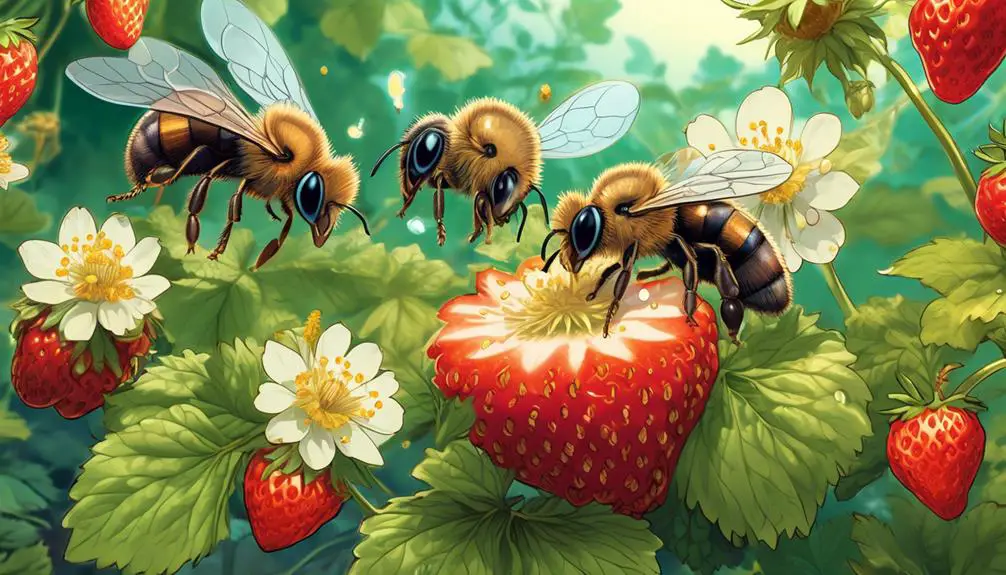
Numerous studies have uncovered fascinating insights into the symbiotic relationship between mason bees and woodland strawberries. These findings reveal that woodland strawberries offer substantial benefits to mason bees, contributing to their overall survival, health, and productivity.
In one noteworthy study, researchers found that mason bees that fed on woodland strawberry nectar had higher survival rates than bees that fed on other floral resources. Another study revealed that the nutritional content of woodland strawberries, particularly their high antioxidant and vitamin levels, significantly improved the bees' health and productivity.
Here's a closer look at these studies:
Study | Key Findings |
|---|---|
Survival Rates Study | Mason bees feeding on woodland strawberries showed higher survival rates. |
Nutritional Content Study | Woodland strawberries enhanced the bees' health and productivity through their high nutritional content. |
These findings underscore the value of woodland strawberries to mason bees and the importance of preserving these habitats. They also highlight the need for further research to deepen our understanding of this symbiotic relationship and to explore potential applications in bee conservation efforts.
Enhancing Bee-Plant Interactions
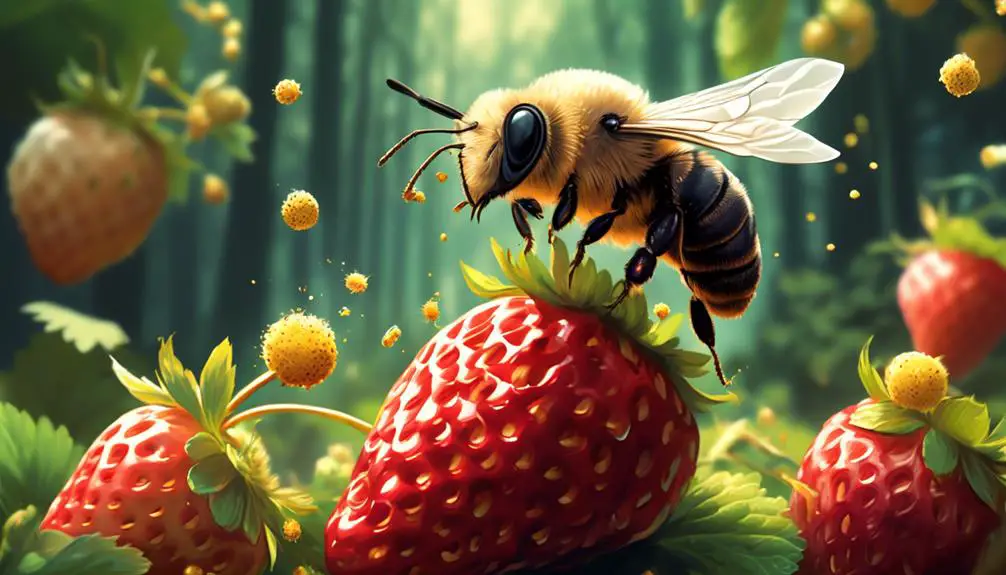
To significantly enhance bee-plant interactions, it's essential to understand the unique dynamics between pollinators like mason bees and their preferred food sources such as woodland strawberries. These bees are attracted to flowering plants that provide ample amounts of pollen and nectar, both of which are critical to their survival and reproductive success.
Woodland strawberries are particularly appealing to mason bees due to their abundant, easily accessible pollen and nectar. You can optimize these interactions by ensuring your garden or green space has a generous supply of these plants. Try to maintain a diverse assortment of flowering plants to extend the blooming season, as this can provide a steady food source for the bees.
It's also crucial to protect the bees' habitat. Mason bees typically nest in small cavities, and providing artificial nesting sites can boost their populations. Avoid using pesticides on your plants, as these can be harmful to these beneficial insects.
Lastly, consider involving local communities in conservation efforts. Educating people about the importance of mason bees and how to create bee-friendly environments can have a significant impact. Remember, enhancing bee-plant interactions isn't just good for the bees, it's also beneficial for the environment and our food supply.
Conclusion
So, are woodland strawberries good for mason bees? Absolutely, they are!
Woodland strawberries provide key nutrients, boosting bee health and productivity. Scientific studies back this up, proving a positive impact on bee-plant interactions.
Enhance these interactions in your own garden by incorporating woodland strawberries. Remember, a happy mason bee means a thriving ecosystem.
Let's do our part in supporting these vital pollinators and the health of our planet.

